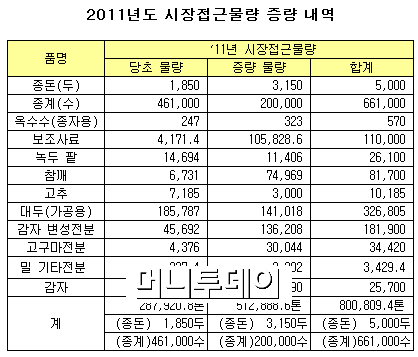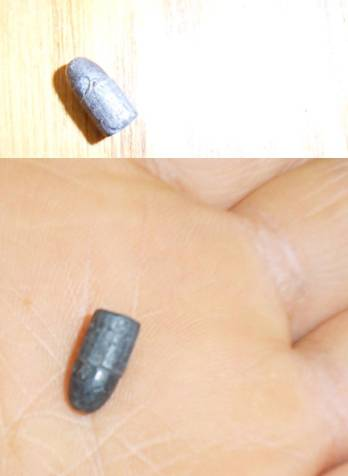
Market Information > Food News Clipping
Food News Clipping
March 24, 2011
2011.03.24
http://www.moneytoday.co.kr/view/mtview.php?type=1&no=2011032314070035388&outlink=1

Local Cattles Are Raised in ‘Honeycomb’ Cells … 2/3 of a Sheet of A4 Paper Space for a Chicken … 2 Sheets of A4 Paper Space for a Swine … Vulnerable to Epidemic Diseases [Korean, OSY]
http://news.donga.com/Society/New/3/03/20110324/35832556/1
Summary: Reporters’ visits to local livestock farms revealed terrifying living environment of local cattle. Most of the livestock animals raised in
Livestock farms refusing to give up mass breeding [English, CSY]
http://english.donga.com/srv/service.php3?bicode=020000&biid=2011032464868
Summary : National Veterinary Research and Quarantine Service, National Plant Quarantine Service, and National Fisheries Product Quality Inspection Service will be merged into one organization to strengthen quarantine capabilities. The government, however, is known to have excluded a plan to limit the number of raised animals for fear of strong objections from livestock farms and difficulty in implementation. A government source said, “Mass breeding is a serious problem, but with the size of most livestock farms smaller than the legal requirement, the plan has many obstacles.”
In a survey of 651 livestock farms nationwide conducted by the Korea Rural Economic Institute in October last year, more than half of the farms said they will not introduce an animal welfare-oriented breeding system or had interest in it. Sixty-five percent of pig and chicken farms that use mass breeding were also against the new system. A pig farm owner told Dong-A, “Under the current livestock product distribution structure, animals cannot be sold for more money even if they’re raised in an environmentally friendly way,” adding, “Requiring us to reduce the heads of livestock is like asking us to die.”
Who is telling the truth about shot gun pellet [Korean: BYK]
http://www.sisaseoul.com/news/articleView.html?idxno=39252

http://www.hani.co.kr/arti/economy/economy_general/469632.html#
Summary: According to a report put out by CRS of the U.S. Congress (Embassy comment: We think the article is referring to OIG), the USG had plans to pressure the ROKG to get a firm promise for full liberalization of U.S. beef if the import volume of U.S. beef increases in Korea. To fulfill this plan, the USG set up “4 detailed conditions” in August 2009. This seems to be a reflection of what happened in April 2008 when it ran up against strong protest from the Korean consumers when both countries agreed to a full market opening without any conditions. The conditions lay out detailed points on what could be considered as the time when confidence for
3. MARKETING ISSUES
Korean food firms flooded with orders from
http://english.yonhapnews.co.kr/business/2011/03/24/37/0501000000AEN20110324004900320F.HTML
Summary: South Korean food makers have been swamped with orders for bottled water and instant noodles from
Survey shows Internet-savvy S. Koreans spend more time online [English, OYS]
http://english.yonhapnews.co.kr/news/2011/03/23/0200000000AEN20110323003300315.HTML
SEOUL, March 23 (Yonhap) -- South Koreans now spend more time online and on mobile phones than five years ago, a survey said Wednesday, the latest sign that the Internet has become a daily necessity for many people in one of the world's most wired countries.
South Koreans surf the Internet for an average of 37 minutes during weekdays, up 25 minutes from 2005, according to the findings of a research
http://english.yonhapnews.co.kr/news/2011/03/23/0200000000AEN20110323009400320.HTML
Summary:
The Ministry of Education, Science and Technology said that while passengers and luggage are being checked, no screening takes place for manufactured goods.
2011/03/23 18:10 KST
Gov't to freeze imports of Japanese food in case of radiation fears [English, OYS]
http://english.yonhapnews.co.kr/news/2011/03/23/0200000000AEN20110323011100315.HTML
Summary:
Lee says incentives more useful than regulations for forest development [English, OYS]
http://english.yonhapnews.co.kr/news/2011/03/23/0200000000AEN20110323008000315.HTML
Summary:
Strong earthquake hitting
http://english.yonhapnews.co.kr/news/2011/03/23/0200000000AEN20110323006900320.HTML
Summary:
Chi Heon-cheol, a researcher at the state-run Korea Institute of Geoscience & Mineral Resources (KIGAM), said that while there is very little chance of a major quake hitting the country, a tremor with a magnitude of 6.5 or higher could take place.
The information in this report was compiled by the Agricultural Trade Office (ATO) at the U.S. Embassy in Seoul, South Korea. The press summaries contained herein do NOT reflect USDA, the U.S. Embassy, or other U.S. government agency official policy or view point. U.S. food exporters can learn more about market opportunities in South Korea by reviewing ATO Seoul’s Exporter Guide and other reports available at www.fas.usda.gov by clicking on “attaché reports”.
Agricultural Trade Office, U.S. Embassy - Seoul
Tel: 82-2-6951-6848 Fax: 82-2-720-7921
Email: atoseoul@state.gov